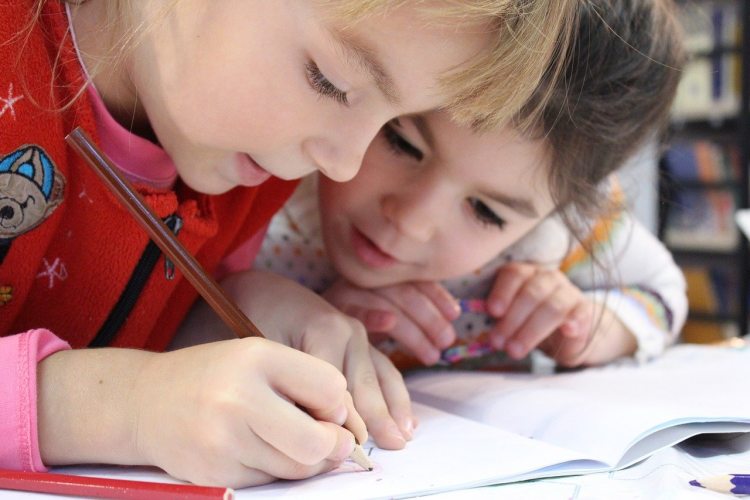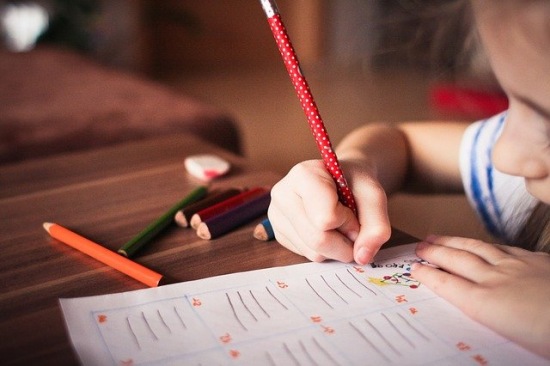Handwriting Skills for Kids: Quick Ways to Help Your Child Improve his/her Handwriting


Having good handwriting is extremely important for an individual. It is an essential life skill that must be taught to kids at an early age. Children who can write smoothly and clearly are better able to use their handwriting for creating some amazing notes that can be used again and again. When your handwriting is automatic, all the thoughts that come to your mind can be used by you smoothly.
It also helps children to develop their reading and spelling skills. With the ability to have extremely amazing handwriting, they can easily recall all the information written by them in one place & with this, it will be easy to remember important pieces of information easily.
Along with this, good handwriting can further be used to make it a career by doing calligraphy. Children can prepare some amazing birthday cards for their friends and relatives. Thus, helping them to save their money over buying expensive cards from the market.
Now, let’s move towards learning how parents can help their kids to improve their handwriting.
Also Read: Are We Setting Up Students for Failure? Is Rote Learning Really Required?
How to Improve Handwriting in English for Kids?


Are you unable to guess what your child writes in his/her notebook? Then, it’s high time to help them improve their handwriting. So, let’s see how you can improve your child’s handwriting.
Often, this question comes to the mind of many students about how to improve handwriting for kids. Don’t worry, we are here to help you out through this. Given below are some ways by which you can help your kid to improve his/her handwriting:
Step One – Getting Started
The most important step before teaching them how to write neatly is to teach them how to correctly hold their pencils. Yes, it might look like something which doesn’t need to be taught to an individual but is indeed something very important. So, before anything, teach your kid to hold his/her pencil in a correct manner. The pencil should be held in place with thumb, index, and middle fingers.
Step Two – Relax the Grip
Putting more pressure on holding the pencil can help your kid to get tired more quickly than before. Though it can help him/her to write neatly, the amount of pressure being put can lead to finger cramping and eyesight issues in the long run.
Another reason for your child holding his/her pencil tightly could be due to stress. So, help your kid burst his/her stress and help him to hold the pencil calmly.
Step Three – Be Encouraging
A positive environment is a happy environment. Yes, it’s absolutely correct and when it comes to your child studying, it plays an even more important role. One should feel excited from within to try new things and to learn something new every day and for that, a positive yet happy environment is extremely important.
Step Four – Identify the Underlying Problem
Often, it is that children write illegibly to cover their mistakes. These could be either grammatical or spelling errors. Also, low self-esteem can push your kid to write in an incomprehensible manner.
So, being a good and supportive parent to your kid, it is your duty to help your kid to find the solutions to such underlying problems.
Step Five – Practice Makes Perfect
Handwriting is an art and like every other, you have to practice hard in order to learn it. It cannot be very difficult to make this activity interesting. All you need to do is focus more on what you’re doing, try some fun games related to this, and develop your interest in this activity.
Now, let’s focus on learning some other handwriting skills.
Also Read: Fine Motor Activities for Kids and Preschoolers: What Are Types of Motor Development?
Handwriting Skills for Kids
Handwriting is an important part of literacy and an essential skill for life. Elder children tend to learn these skills easily and at a faster rate than younger ones. So, if you want your toddler to write neatly, help him learn this skill from a young age.
Given below are some of the important questions that often come to the mind of parents regarding improving their children’s handwriting:
-
How do Children Learn to Handwrite?
Handwriting is a skill that takes years for an individual to learn. To learn this, children need to practice more and follow the instructions given by their elders. Parents can encourage their children to develop an interest in handwriting by providing them with some amazing opportunities to draw, scribble, and write.
-
How can Children be Taught to Write Neatly at School?
School plays an important role in the upbringing of any child. So, if you want your child to be good at writing, pay attention to providing him/her with a good school where the teachers are supportive and encouraging. During the first two years, your child will just be introduced to forming letters, spelling words, and recognizing them. Then only, they can learn to write.
-
What are Some of the Problems Faced by Children during their Early Ages?
There could be various problems that your child can face while improving his/her handwriting. These are:
- Your child might find it difficult to draw some really difficult letters.
- Every child has a different way of holding a pencil. As parents, you can teach your child to hold the grip of the pencil correctly yet differently as a poor grip can slow down their handwriting progress and make it hard for them.
- Your child might have untidy writing where the words mix up with each other. Sit with them to teach them to write different words in a different manner. Just be patient enough with your kid and don’t let your anger overpower your love for your child.
Conclusion
Each and every minute can be a teaching and learning moment for an individual. While teaching your kid to practice good handwriting, there might be many things that you’ll come across which you might not have learned before. So, be patient enough with your kid to help him/her learn things effectively and don’t burden them with the pressure of learning things quickly.
Encourage your child to just word hard and not worry at all about failing. Whatever might be his pace at learning, a little patience and support are all he needs to excel in life.
The above piece of information provides all those young and new parents to help their kids in a positive manner.
Hopefully, you must have found this information useful and if you have any further doubts, queries, or difficulties regarding the same, feel free to use the comments section below to let us know all about it because we’ll be more than happy to help you through it. Also, don’t forget to check our other blogs. Give them a good read to know more about it.
Recent Posts
What are the Advantages of Online Teaching at The Real School?
In the article -"What are the Advantages of Online Teaching at The Real School?" we…
What is the Full Form of School?: Unveiling the Acronym
The term "school" carries profound significance in the realm of education, representing more than just…
What is Math Full Form?: Cracking the Code
Mathematics, often referred to as "Math," is a subject that elicits various reactions from students…
What is Full Form of Homework?: Decoding Academics
Homework, an integral part of the academic journey, often raises questions about its purpose and…
What is Full Form of Teacher?: Demystifying Education
In the intricate tapestry of education, teachers stand as the pillars shaping the intellectual and…
What is Real Education?: Discovering Its Essence and Impact
The concept of real education is evolving, transcending traditional views that equate it solely with…


